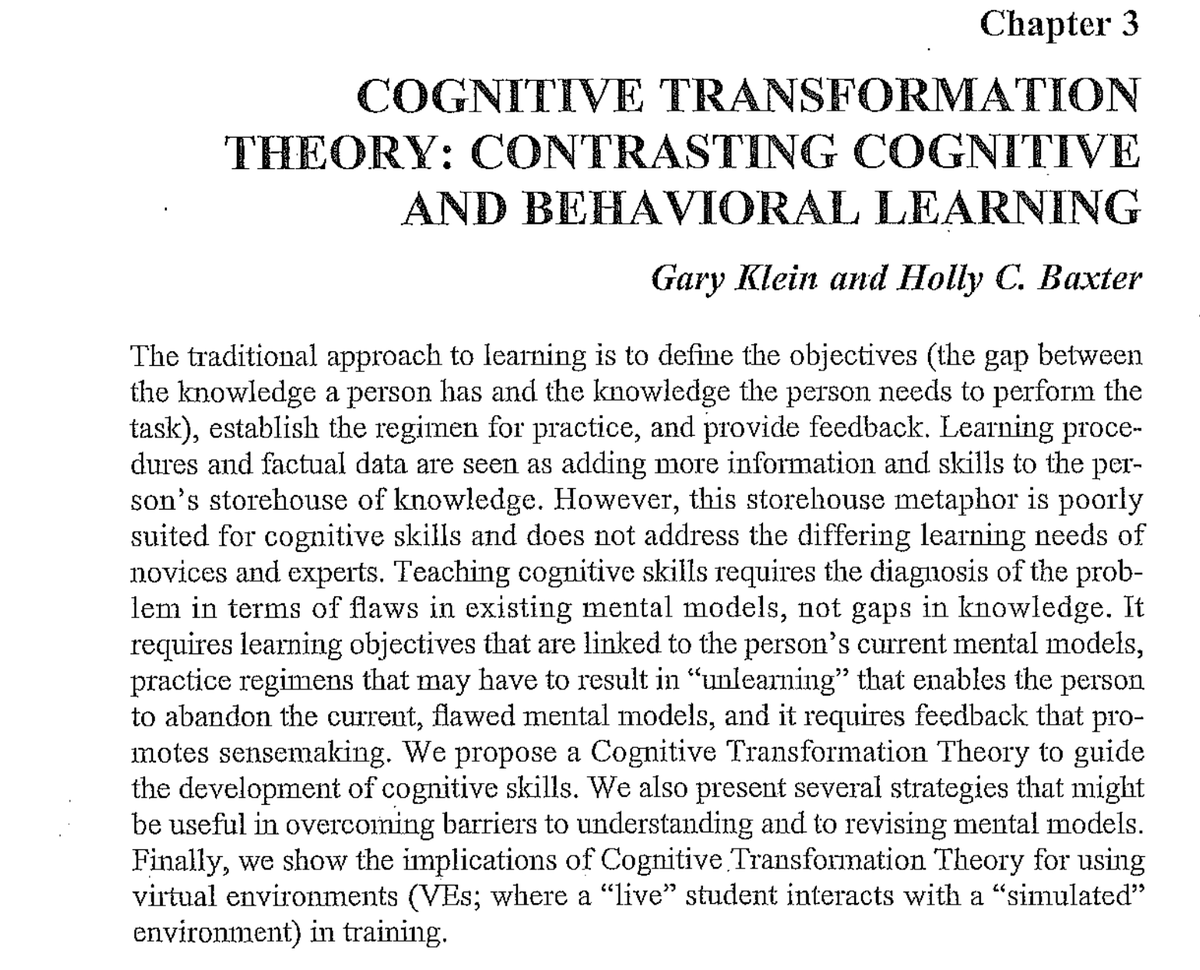 Paper with major implications for T-ED and coaching:
Paper with major implications for T-ED and coaching:'Cognitive Transformation Theory: contrasting cognitive and behavioural learning' (2006) by Gary Klein and Holly Baxter.
https://www.researchgate.net/publication/254088055_Cognitive_Transformation_Theory_Contrasting_Cognitive_and_Behavioral_Learning/link/565512fb08aeafc2aabc2ed8/download
 Moving beyond the store-house metaphor for teacher learning...
Moving beyond the store-house metaphor for teacher learning... ...
...
Lots of our theories of T-ED and coaching operate a storehouse metaphor for teacher learning.
In other words, we assume the learner is missing some critical knowledge: coaches identify this, teach or practice, give feedback and test.
In other words, we assume the learner is missing some critical knowledge: coaches identify this, teach or practice, give feedback and test.
If we coach using 'See It, Name It, Do It' this is our model.
We identify a deficiency, model the solution, clarify the gap between them and use practice and feedback to bridge the gap.
This is classic instructional coaching.
We identify a deficiency, model the solution, clarify the gap between them and use practice and feedback to bridge the gap.
This is classic instructional coaching.
 Problem:
Problem:Teaching is a highly complex 'ill-structured' domain. We can't change a teacher's practice *just* by giving them stuff to do...
"Rather, we have to revise ... belief systems and ... mental models as experience shows the inadequacy of ... current ways of thinking."
 Getting better as a teacher isn't JUST about changing our actions...
Getting better as a teacher isn't JUST about changing our actions..."Learners are not simply accumulating more knowledge into a storehouse. They are changing their perspectives on the world." These changes are "uneven" rather than "smooth and cumulative."
When we coach teachers, we need to focus just as much on the diagnosis of flaws in their mental models as we do on using modelling and deliberate practice to change their teaching.
"The instructor...has to ferret out the reasons why the student is confused and making errors."
"The instructor...has to ferret out the reasons why the student is confused and making errors."
 My big question here:
My big question here:How can we build this process of mental model exploration and diagnosis into an easy to use and practical coaching framework?

 Read on Twitter
Read on Twitter


